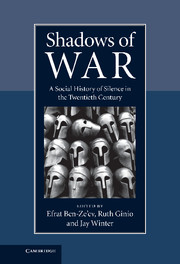Book contents
- Frontmatter
- Contents
- Notes on contributors
- Preface and acknowledgments
- Part I Framing the problem: Multi-disciplinary approaches
- Part II Europe
- 3 Breaking the silence? Memory and oblivion since the Spanish Civil War
- 4 In the ashes of disgrace: Guilt versus shame revisited
- 5 On silence, madness, and lassitude: Negotiating the past in post-war West Germany
- Part III Africa
- Part IV The Middle East
- Index
- References
4 - In the ashes of disgrace: Guilt versus shame revisited
Published online by Cambridge University Press: 04 May 2010
- Frontmatter
- Contents
- Notes on contributors
- Preface and acknowledgments
- Part I Framing the problem: Multi-disciplinary approaches
- Part II Europe
- 3 Breaking the silence? Memory and oblivion since the Spanish Civil War
- 4 In the ashes of disgrace: Guilt versus shame revisited
- 5 On silence, madness, and lassitude: Negotiating the past in post-war West Germany
- Part III Africa
- Part IV The Middle East
- Index
- References
Summary
In 1946, the Columbia University anthropologist Ruth Benedict published a book version of a report she had written during the War for the Foreign Morale Analysis Division of the US Office of War Information. Since then, The Chrysanthemum and the Sword has been considered a classic, most noted for its contrast of a Japanese “shame culture” to a Western “guilt culture.” “A society that includes absolute standards of morality and relies on men's developing a conscience,” Benedict writes, “is a guilt culture by definition …” “True shame cultures,” in contrast, “rely on external sanctions for good behavior, not, as true guilt cultures do, on an internalized conviction of sin. Shame is a reaction to other people's criticism.” Perhaps the most important difference for Benedict is in how individuals in “guilt cultures” and in “shame cultures” process misdeeds: In a “guilt culture,” “A man who has sinned can get relief by unburdening himself. This device of confession is used in our secular therapy and by many religious groups which have otherwise little in common. We know it brings relief.” On the other hand, “Where shame is the major sanction, a man does not experience relief when he makes his fault public even to a confessor. So long as his behavior does not ‘get out into the world’ he need not be troubled and confession appears to him merely a way of courting trouble. Shame cultures therefore do not provide for confessions, even to gods” (p. 222).
- Type
- Chapter
- Information
- Shadows of WarA Social History of Silence in the Twentieth Century, pp. 68 - 90Publisher: Cambridge University PressPrint publication year: 2010
References
- 1
- Cited by



